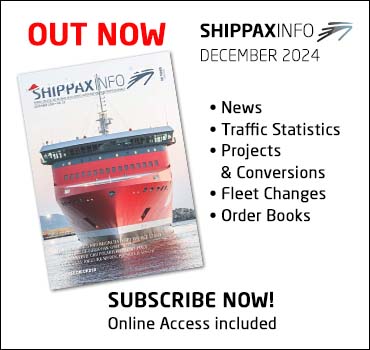Inmarsat unveils major new IoT service for the shipping industry
Fleet Data fully utilises Voyage Data Recorder ship to shore connectivity infrastructure with dedicated bandwidth to offer a clear pathway to maritime digitalisation
Fleet Data fully utilises Voyage Data Recorder ship to shore connectivity infrastructure with dedicated bandwidth to offer a clear pathway to maritime digitalisation
4 September 2018: Inmarsat unveils Fleet Data, a new Internet of Things (IoT) service, which will enable ship owners and managers to access and analyse real-time onboard data more efficiently, and as a result will help accelerate the adoption of IoT across the maritime industry.
Developed in partnership with Danelec Marine, Fleet Data will record data from the onboard Voyage Data Recorder (VDR), and other vessel sensors, pre-process that data, and upload it to a central (cloud-based) database equipped with a dashboard and Application Process Interface (API). This will allow ship owners and managers to quickly and easily identify equipment issues and failures and seamlessly link 3rd party applications to monitor vessel performance and fuel efficiency.
Latest research published by Inmarsat on digital transformation in shipping* indicates that, on average, ship operators and managers plan to spend $2.5 million on IoT-based solutions within three years and expect, on average, to achieve IoT-driven cost savings of 14% over the next five years.
The research also strongly suggests that a greater maritime appetite for IoT-based solutions would emerge if more data could be delivered and analysed in real-time.
Fleet Data is the only service that offers a highly reliable, dedicated bandwidth-inclusive service, on a sensor agnostic platform that allows ship owners and managers to access the full potential of IoT and efficiency-enhancing vessel performance applications, in real time.
"Fleet Data will overcome key difficulties faced by those frustrated with the challenge of aggregating vessel data on-board and getting it efficiently onshore," says Stefano Poli, VP, Business Development, Inmarsat Maritime. "It will allow ship operators and managers to access, control and exploit their own data, and/or to make that data available to selected third-party applications as required, via a secure platform that is fully scalable, fleet-wide.
"Fleet Data can make data available either via a dashboard or via APIs," says Poli. "Data reports can be customized and modified, then sent back as a configuration file to update the Fleet Data equipment software on-board".
Trials of Fleet Data are due for completion this month aboard two ships operated by a leading ship manager, which have been verifying performance over a six-month period by relaying data collected through fuel optimisation software.
Hans Ottosen, CEO of Danelec Marine, commented: "Fleet Data brings together Danelec's twenty plus years of experience in shipboard data infrastructure and Inmarsat's unmatched position as the premier maritime satellite communications provider, to create a seamless shipboard and shoreside IoT experience for ship owners and managers."
Fleet Data is available on both Fleet Xpress and FleetBroadband making it accessible to over 45,000 vessels. Inmarsat's Fleet Xpress and FleetBroadband are the maritime industry's leading global, mobile connectivity services, delivering, respectively, the world's first and only globally available, high-bandwidth solution from a single operator, and the world's most reliable mobile satellite communications service.
Fleet Xpress, which was introduced in 2016, has been adopted by all the major airtime providers such as Speedcast, Marlink, Navarino and Tototheo.
Laboratory tests with other applications to run over Fleet Data, such as ECDIS chart updates on the FleetBroadband service, are also underway in Ålesund, Norway, the home of Inmarsat's research and development activities for the commercial maritime sector.
Today, all passenger and cargo ships of 3,000gt and above must carry a VDR under the Convention for Safety of Life at Sea; able to interface with input signal sources, recording/playback equipment, and power supply/reserve power. To enable Fleet Data, ships need to install a Vessel Remote Server (VRS) and the solution is agnostic in terms of VDR manufacturer.
*The Industrial IOT on Land and at Sea – published July 2018; research commissioned to Vanson Bourne, specialist technology market research company. https://research.inmarsat.com/
Sep 07 2018
Most read
Stena Line seeks to secure alternative Irish Sea crossings as storm-damaged Holyhead Port remains closed
Dec 18 2024

















